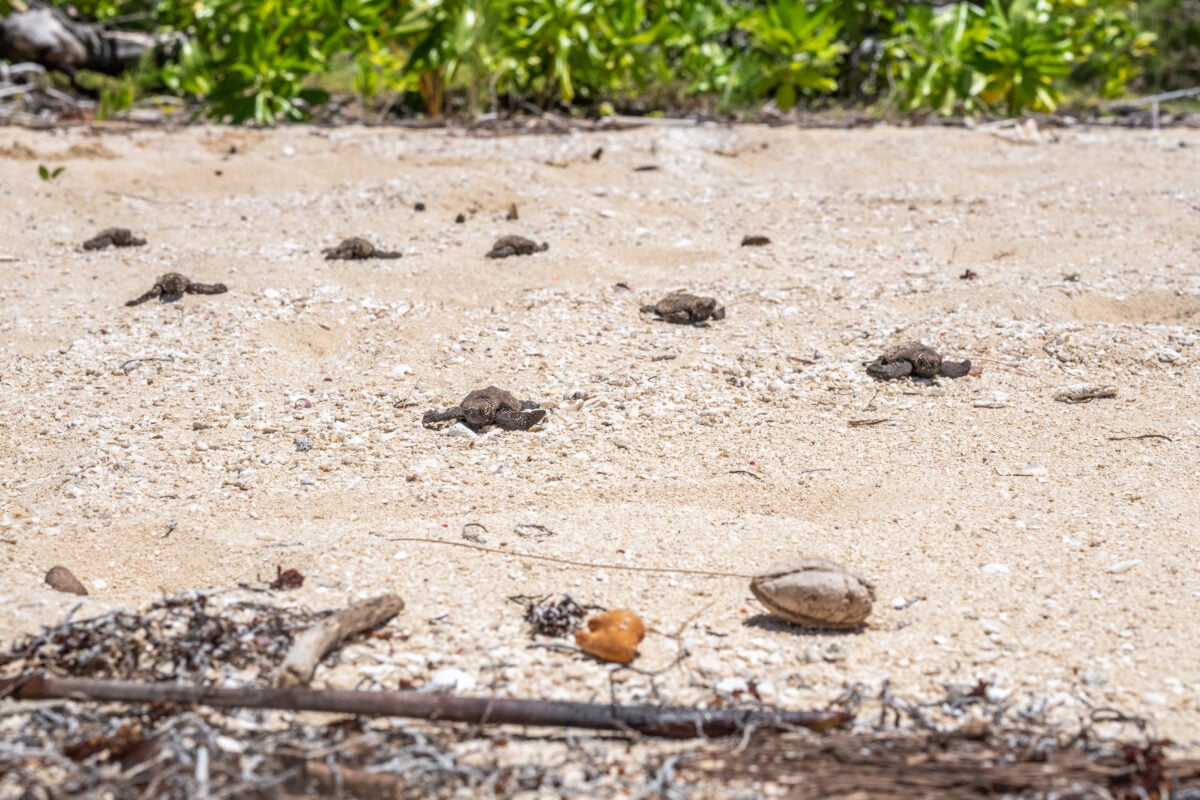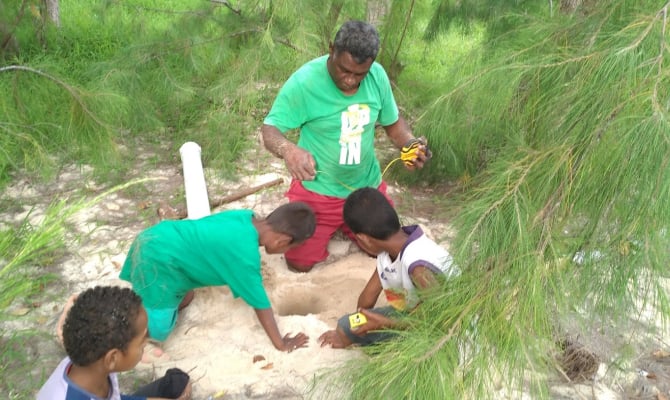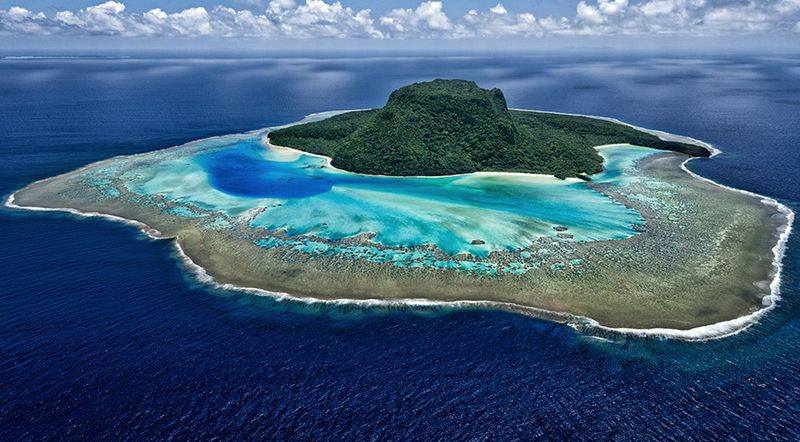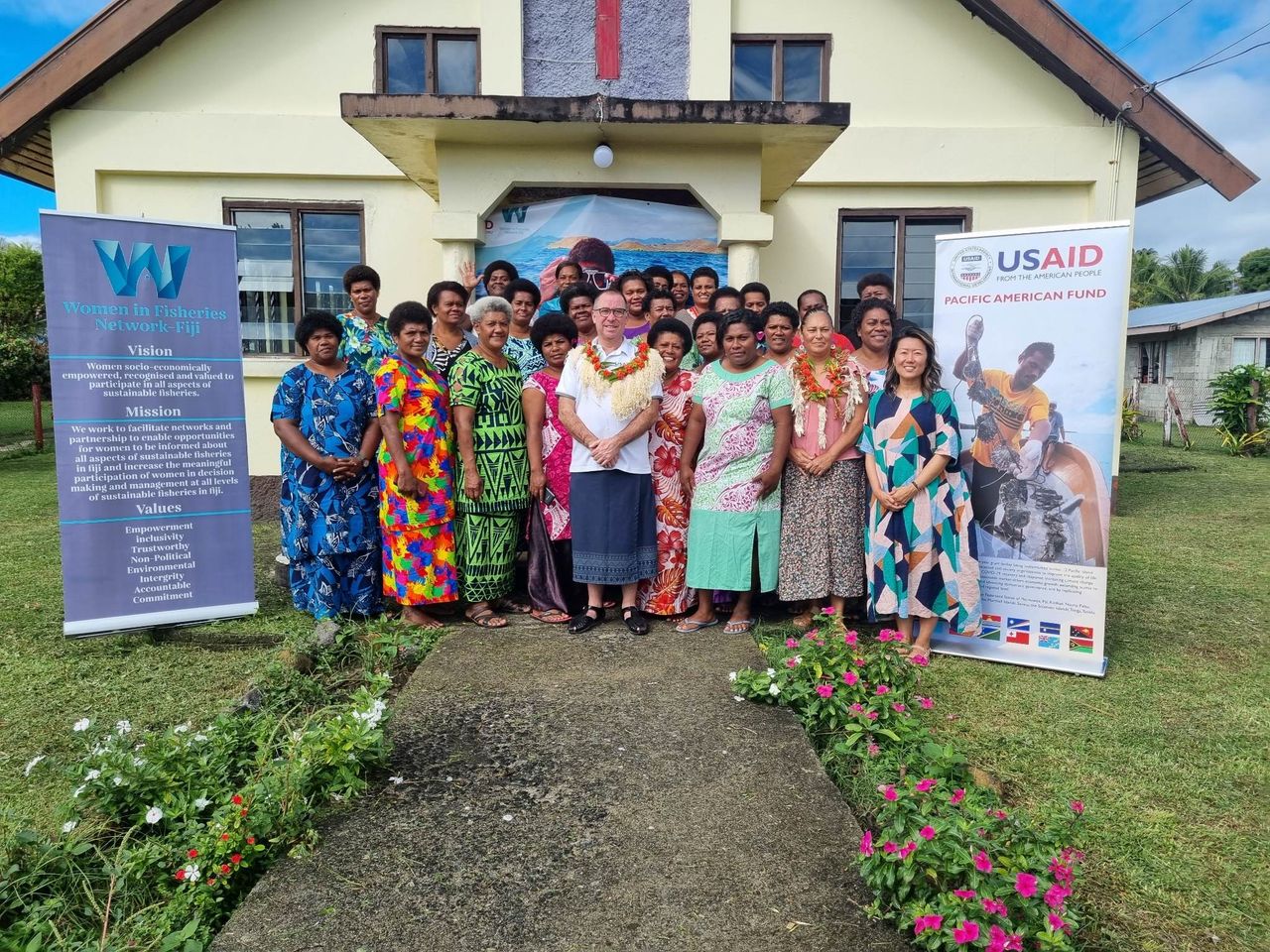In a landmark declaration, the communities of Nadogo District representing 22 traditional tribes (yavusas), united to declare Nukuvadra and Katawaqa islands as community protected areas and turtle sanctuaries.
This declaration marks a significant boost for sea turtle populations, particularly the critically endangered hawksbill turtles, as these islands are well-known nesting sites for these ancient mariners. The move comes as an urgent response to the growing threats posed by climate change impacts, and exemplifies a powerful community-led approach to conservation that will safeguard these migratory species and their nesting sites for generations to come.
The significance of Nadogo’s decision to declare Nukuvadra and Katawaqa islands as Community Protected Areas reaches far beyond their shores. With climate change impacts extending their reach, this initiative becomes a beacon of hope for the critically endangered hawksbill turtle populations. As nesting beaches erode due to severe storms and rising sea levels cause regular beach flooding, the delicate balance of nature is at risk. Higher temperatures affecting beach sand, changing sex ratio population dynamics, and hatchling survival further exacerbate the challenges faced by these magnificent creatures.
The designation of these islands is the outcome of numerous awareness sessions and extensive consultations with government and non-governmental organisations, under the leadership of the Tui Nadogo, Ratu Ilisaniti Malodali and the Nadogo Development Committee which includes representatives of the district’s 22 tribes.
Recognising that each tribe has its unique history, traditions, and connection to the land and sea, the Tui Nadogo and other traditional leaders understood the importance of harnessing the collective wisdom and knowledge of all its members.
“I grew up witnessing the gradual changes in our environment”, said Ratu Malodali, who grew up amidst the gradual changes brought about by climate change.
For generations, they have witnessed the evolving landscape first hand.
“Our people have stewarded these lands for decades, and it is our responsibility to ensure their preservation for the well-being of our community and the delicate ecosystems that thrive here”, said Ratu Malodali.
Nukuvadra and Katawaqa islands are nesting sites and a project site for WWF, in the province of Macuata. Both islands are currently identified as index beaches for the critically endangered hawksbill turtles. Index beaches are classified as a nesting site with more than 10 nests annually over five consecutive years. A single nest can contain between 80 to 150 turtle eggs.
WWF has been actively monitoring turtle nesting sites for the past two years, including project sites in Yadua (Bua), Dravuni (Kadavu), and Tuvuca (Lau) islands. The data collected will play a crucial role in informing the Fiji Sea Turtle Recovery Plan, aimed at enhancing turtle protection and conservation efforts. This work has been funded by WWF-UK through the Safeguarding Nesting Populations of Sea Turtles in Fiji Project.
“With the formal endorsement of the protected islands and under the watchful eyes of the Nadogo community, this declaration will contribute towards enhancing regional efforts to recover critically endangered hawksbill turtle populations”, said Programme Manager for the Sustainable Fisheries and Seafood Programme, Duncan Williams.
The foundational community protected efforts supported in Nadogo District through WWF-Pacific was funded by the WWF-Netherlands Office and continues to be supported under the mangroves focus of the Bezos Earth Fund through the WWF-US Office and sustainable fisheries management though the Climate Resilient by Nature (CRxN), an Australian Government initiative, in partnership with WWF-Australia.
WWF UK has been instrumental in supporting through generous funding of specific marine turtle species work as the two islands are identified as critical nesting sites in Fiji. This effort has been in the form of research, community outreach, monitoring and management aligned to the communities’ broader district Fisheries Management Plan and Protected Areas Guidelines for the two islands. The WWF-UK project intends to mobilise similar community efforts to protect other critical marine turtle nesting sites in three other districts and continues to build a coalition of the willing with as many interested districts in Fiji.
The Tui Nadogo challenges other District chiefs in Fiji to take similar actions to better protect and manage their natural resources for their respective communities and future.
This story was originally published at WWF Pacific on 04 August 2023.




